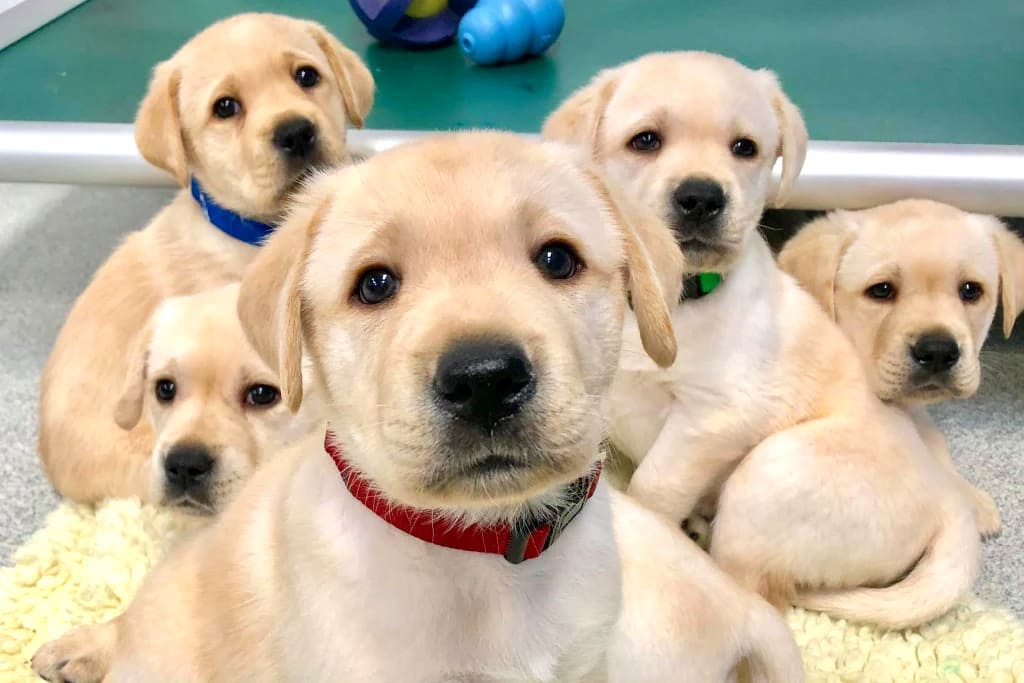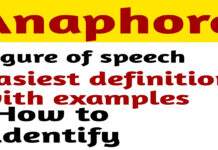Discover the meaning, forms, synonyms, antonyms, and cultural significance of the word ‘pup’ in this comprehensive 1000-word essay. Learn about the special bond between humans and their young companions, along with its various linguistic uses.
Pup: Meaning, Synonyms, Antonyms, Facts
Pup: Meaning
The word “pup” refers to a young dog, especially one that is not yet fully grown. It can also be used to describe the young of certain other animals, such as seals, sharks, or guinea pigs. The term “pup” is often used affectionately when referring to a young dog.
Use of the Word ‘Pup’ in a Sentence
Noun: “The pup wagged its tiny tail excitedly when it saw its mother.”
Verb: “The seals pup on the rocky shores every spring.”
Forms of the Word ‘Pup’
- Noun: Pup (a young dog or the young of certain other animals)
- Verb: Pup (to give birth to pups, as in the case of certain animals)
- Adjective: Puppyish (characteristic of or resembling a puppy)
- Noun (Related): Puppyhood (the period or state of being a puppy)
Synonyms of the Word ‘Pup’
- Puppy
- Young dog
- Cub
- Kitten (in the context of other young animals, though more specific to cats)
Antonyms of the Word ‘Pup’
- Adult dog
- Grown dog
- Mature dog
- Senior dog
You May Like:
Exhaustive Essay on the Word ‘Pup’
Introduction
The word “pup” is a simple yet endearing term that brings to mind images of playful, curious young dogs. While it is most commonly associated with young dogs, the word “pup” can also refer to the young of various other animals, such as seals or sharks. This essay will delve into the meaning of the word “pup,” its different forms and uses, its synonyms and antonyms, and its significance in language and culture.
The Meaning of ‘Pup’
The word “pup” is primarily used to describe a young dog, typically one that is not yet fully grown. Puppies are known for their playful nature, boundless energy, and endearing behavior. They are often characterized by their small size, soft fur, and big, expressive eyes. The term “pup” is often used affectionately or tenderly, reflecting the special bond that people often feel with young dogs.
In addition to referring to young dogs, the word “pup” can also be used to describe the young of certain other animals. For example, the young of seals are called pups, as are the young of some species of sharks and rodents. In these cases, the term “pup” is used in a more technical or biological sense.
Different Forms of the Word ‘Pup’
The word “pup” can be used in several different forms, each with its own meaning and application. As a noun, it refers to a young dog or the young of certain other animals. For example, “The seal gave birth to a single pup on the rocky shore.”
As a verb, “pup” is used to describe the act of giving birth to pups. This usage is most commonly applied to animals such as seals or other mammals. For instance, “The dog will pup in a few weeks.”
The adjective form “puppyish” describes behavior or characteristics that are typical of a puppy. This can include traits such as playfulness, innocence, or curiosity. For example, “Her puppyish enthusiasm for the new project was contagious.”
The noun “puppyhood” refers to the period or state of being a puppy. It encompasses the early stages of a dog’s life when it is still growing and developing. For example, “The challenges of puppyhood include house training and teaching basic commands.”
The Role of Pups in Human Society
Pups, or puppies, hold a special place in human society. They are often seen as symbols of innocence, joy, and unconditional love. The bond between humans and puppies is one of the earliest and most significant connections that many people experience with animals. Puppies are often chosen as pets because of their playful and affectionate nature, and they quickly become beloved members of the family.
In many cultures, the arrival of a new pup is a cause for celebration. Families may hold special gatherings or rituals to welcome the pup into their home. The process of raising a pup, from its early days of puppyhood to its eventual maturation into an adult dog, is a rewarding experience that teaches responsibility, patience, and compassion.
Pups also play a significant role in various working and service capacities. For example, puppies that are trained to become guide dogs or service dogs begin their training at a young age. Their early development and socialization are crucial to their success in these roles. Additionally, therapy puppies are often brought into hospitals, schools, and nursing homes to provide comfort and emotional support to people in need.
Synonyms and Antonyms
The word “pup” has several synonyms that can be used interchangeably, depending on the context. The most common synonym is “puppy,” which is often used to describe a young dog in a more informal or affectionate manner. Other synonyms include “young dog” and “cub,” though “cub” is more commonly associated with the young of larger wild animals, such as lions or bears.
In contrast, the antonyms of “pup” include “adult dog,” “grown dog,” “mature dog,” and “senior dog.” These terms are used to describe dogs that have reached full maturity and are no longer in the puppy stage.
Pups as Symbols
Pups are often used as symbols of new beginnings, innocence, and the potential for growth. Their playful and curious nature makes them ideal representations of the joys and challenges of early life. In literature and popular culture, pups are frequently depicted as loyal companions who bring joy and comfort to those around them.
The image of a pup is also commonly used in advertising and marketing to evoke feelings of warmth and affection. Products that are associated with puppies, such as pet food or toys, often use images of cute, playful pups to appeal to consumers. This is because puppies are universally recognized as symbols of happiness and unconditional love.
Cultural Significance
The cultural significance of pups varies across different societies, but they are generally viewed with affection and admiration. In Western cultures, puppies are often seen as the quintessential family pet, symbolizing joy, companionship, and the innocence of youth. The phrase “puppy love” is used to describe the intense but often fleeting affection that young people feel for each other, further emphasizing the connection between pups and the concept of youthful innocence.
In some cultures, the care and training of pups are deeply ingrained in traditional practices. For example, in certain Indigenous cultures, dogs and their pups are considered valuable members of the community, providing assistance in hunting and protection. The relationship between humans and pups is one of mutual respect and cooperation, with pups being raised to fulfill important roles within the society.
The Human-Pup Bond
The bond between humans and pups is one of the most cherished and enduring relationships in the animal kingdom. This bond is built on trust, affection, and the mutual enjoyment of each other’s company. Puppies, with their boundless energy and eagerness to explore the world, bring a sense of joy and wonder into the lives of their human companions.
The process of raising a pup involves significant time and effort, but the rewards are immeasurable. The companionship and loyalty that pups offer are unmatched, and the experiences shared during puppyhood often create lasting memories for both the pup and the owner. Whether through playful interactions, training sessions, or quiet moments of bonding, the connection between a human and their pup is one of deep emotional significance.
Conclusion
In conclusion, the word “pup” encompasses much more than just a young dog. It represents the innocence, joy, and potential for growth that puppies bring into our lives. Pups hold a special place in human society, whether as beloved pets, working animals, or symbols of loyalty and affection. Their various forms, including the noun, verb, and adjective, reflect the different roles they play in our lives. The bond between humans and pups is one of the most profound and enduring connections in the animal kingdom, built on mutual trust, love, and companionship.
FAQs about the Word ‘Pup’
1. What is the difference between a pup and a puppy?
“Pup” and “puppy” are essentially synonyms, both referring to a young dog. However, “puppy” is more commonly used in everyday language, while “pup” can be slightly more formal or technical.
2. Can the word ‘pup’ refer to animals other than dogs?
Yes, the word “pup” can also refer to the young of certain other animals, such as seals, sharks, and some rodents.
3. What is the verb form of ‘pup’?
The verb form of “pup” is used to describe the act of giving birth to pups, as in “The seals pup on the beach each year.”
4. Is ‘puppyish’ a real word?
Yes, “puppyish” is an adjective that describes behavior or characteristics typical of a puppy, such as playfulness and curiosity.
5. How do you use ‘pup’ in a sentence?
As a noun: “The pup followed its mother closely.” As a verb: “The dog will pup soon.”
Pup: Facts in Brief
Here are some brief facts about pups:
1. Definition: A “pup” is a young dog, typically under one year old. The term can also refer to the young of certain other animals, like seals or sharks.
2. Growth: Pups grow rapidly in their first year, with most breeds reaching about 75% of their adult size by six months.
3. Development: Puppies are born blind, deaf, and toothless. Their senses develop gradually, with eyes and ears usually opening around two weeks after birth.
4. Teething: Pups begin teething at around three weeks of age and continue until about six months, during which time they may chew on objects to relieve discomfort.
5. Socialization: The early weeks of a pup’s life (3-12 weeks) are crucial for socialization. During this period, they learn important behaviors from their mother, littermates, and human interaction.
6. Vaccination: Pups require a series of vaccinations starting at about six to eight weeks of age to protect them from common canine diseases.
7. Training: Early training is essential for pups. Basic commands, house training, and leash training should start when they are around eight weeks old.
8. Diet: Pups have specific dietary needs that differ from adult dogs. They require food rich in protein, fat, and calories to support their rapid growth.
9. Energy: Pups are known for their high energy levels. They are naturally curious and playful, requiring regular exercise and mental stimulation.
10. Sleep: Pups need plenty of sleep—up to 18-20 hours a day. Sleep is crucial for their growth and development.
These facts highlight the important stages and needs of pups as they grow into healthy, well-adjusted adult dogs. 0 0 0











